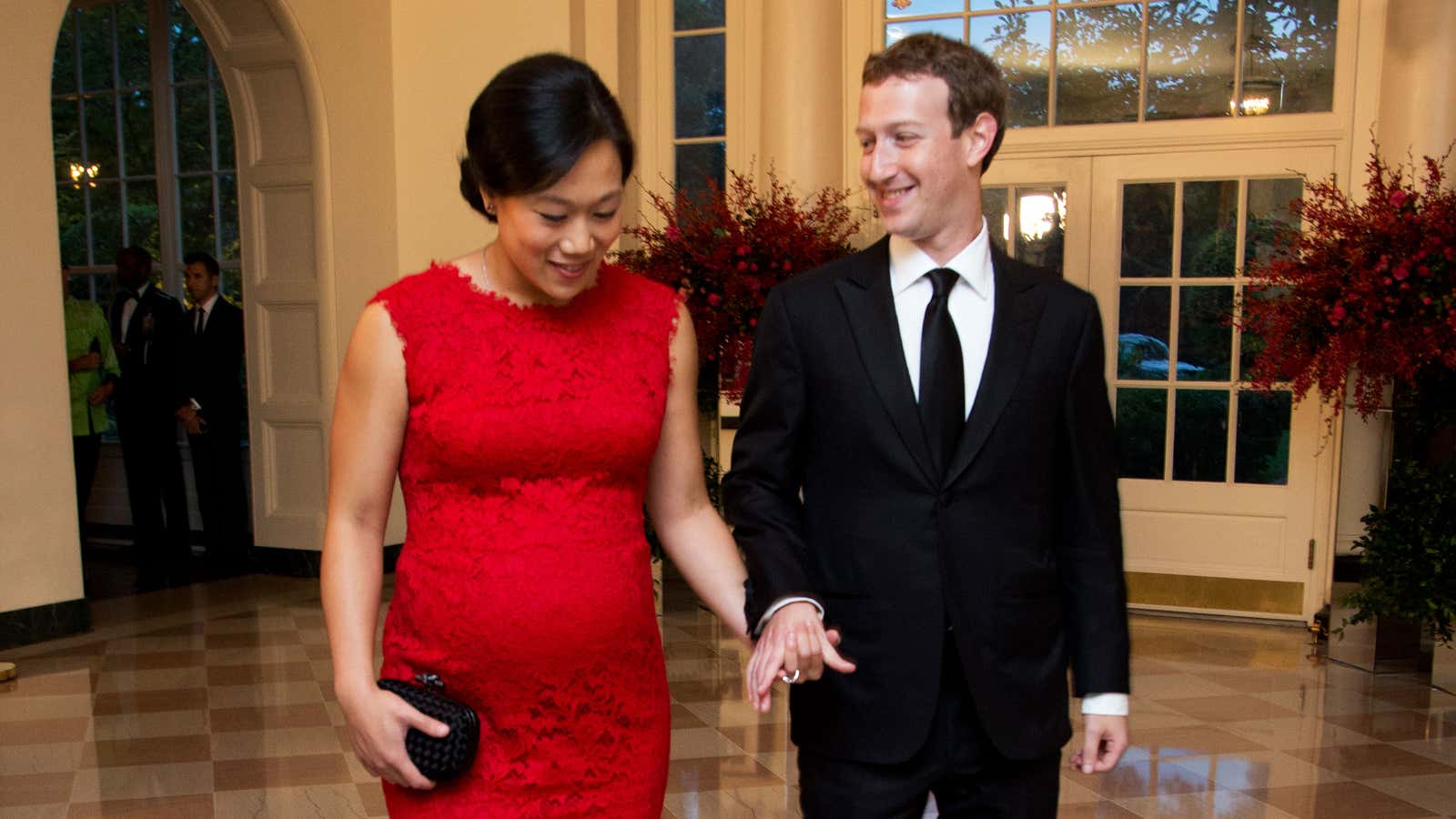Way to set an example.
Facebook CEO Mark Zuckerberg said today (Nov. 20) that he is planning to take two months of paternity leave following the birth of his daughter. The Menlo Park, California, company offers its US employees four months of paid maternity and paternity leave.
“This is a very personal decision, and I’ve decided to take 2 months of paternity leave when our daughter arrives,” he said in a Facebook post today (Nov. 20). ”Studies show that when working parents take time to be with their newborns, outcomes are better for the children and families.”
Quartz has reached out to Facebook to find out who will take over Zuckerberg’s day-to-day duties while he’s gone and when that will happen.
In July, Zuckerberg announced that he and his wife, Priscilla Chan, were expecting a baby girl. He revealed then that the couple had suffered three miscarriages, opening a dialog on a deeply personal issue that many find taboo to discuss.
In recent months, several high-profile tech companies have drawn praise for expanding their parental leave benefits. Virgin Group and Netflix are now offering up to a year of paid maternity and paternity leave. Amazon recently announced 20 weeks of leave for birth mothers, with the ability for employees to share six weeks of paid leave with a partner.
Only 70 countries currently offer paid paternity leave. In the US, the Family Medical Leave Act requires companies with more than 50 employees to provide 12 weeks of unpaid leave, but there are some stipulations to this benefit.
Studies have suggested that family-friendly policies such as paternity leave can ultimately help women stay in the workforce longer and boost their future earnings. One Swedish study, for example, found that a mother’s future earnings rose 7% on average for each month of leave her husband took.
Tech companies have shown themselves to be open minded about the issue. However, paternity leave remains a contentious issue, and many men feel it’s difficult to ask for this time off, worried about possible backlash from colleagues for their absence.
